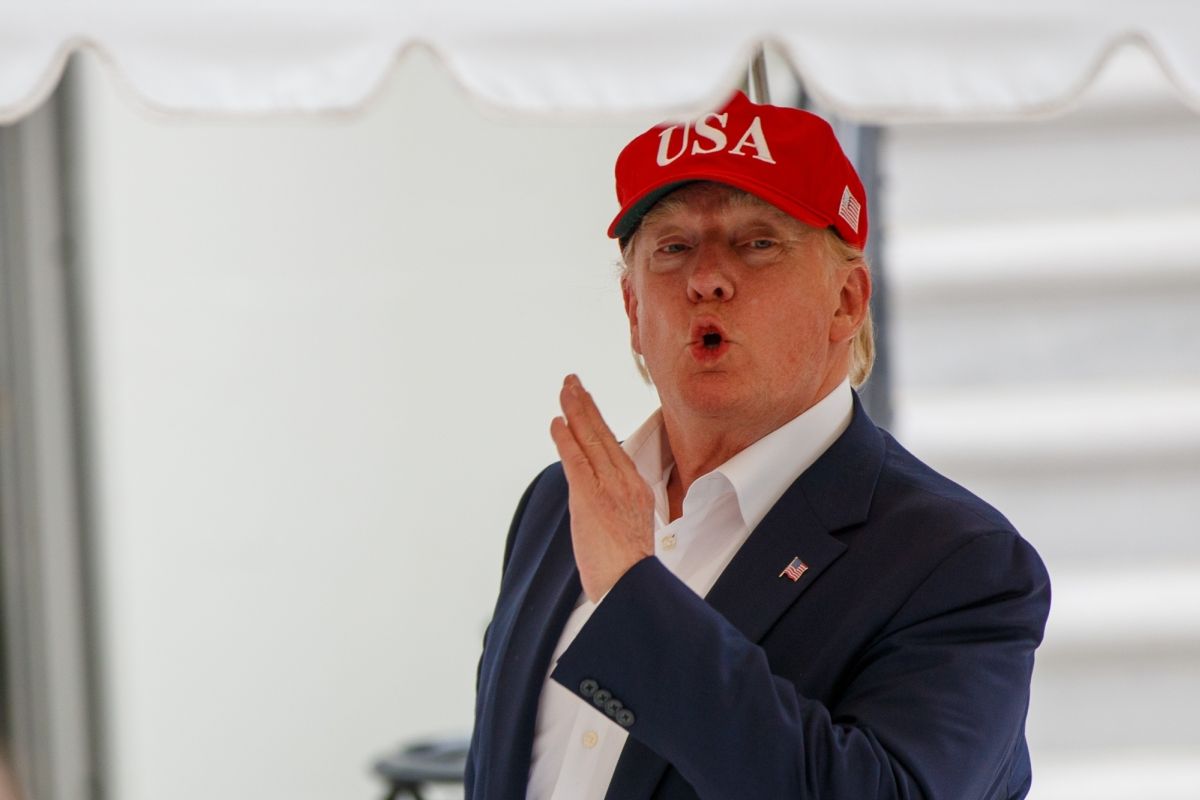As tempers flared in Washington…
Donald Trump and his Vice President JD Vance together targeting Ukrainian President Volodymyr Zelenskky in full media glare is a spectacle not witnessed in years.
The US move came almost simultaneously along with a key development in the estuary state where police and firemen entered a university which had been under police siege for more than 10 days.

US President Donald Trump (Photo: IANS)
US President Donald Trump on Thursday signed two bills that support human rights and pro-democracy protesters in Hong Kong, drawing angry objections from Beijing’s Foreign Ministry.
“The nature of this is extremely abominable, and harbours absolutely sinister intentions,” the foreign ministry said in a statement, without specifying what measures Beijing might take.
Advertisement
“It seriously violated international law and the basic norms of international relations,” the foreign ministry statement said while accusing the US of supporting the “endangerment of social order by violent criminals” and seeking to destroy the stability of Hong Kong.
Advertisement
The US move came almost simultaneously along with a key development in the estuary state where police and firemen entered a university which had been under police siege for more than 10 days.
On Wednesday, Trump said in a statement, “I signed these bills out of respect for President Xi, China, and the people of Hong Kong. They are being enacted in the hope that Leaders and Representatives of China and Hong Kong will be able to amicably settle their differences leading to long term peace and prosperity for all”.
The US President is seeking a deal with China, in order to end a damaging trade war between the two countries.
He had previously been noncommittal about whether he would sign the bill, saying he was “with” Hong Kong but that Mr Xi was also “an incredible guy”, BBC reported.
Trump also signed a second bill, which bans the export of crowd-control munitions to the police in Hong Kong – including tear gas, rubber bullets and stun guns.
Last week, US lawmakers overwhelming approved legislation that supports human rights and democracy in Hong Kong and also backs the territory’s anti-China protesters, sending the measure opposed by Beijing to President Trump.
The democracy bill has received broad bipartisan support and will now go to the House of Representatives, which passed a slightly different version of the bill last month. Then, it will head to the White House for President Donald Trump to review.
China had condemned the passing of the Hong Kong Human Rights and Democracy Act of 2019 in the US Senate.
On Tuesday, Hong Kong Chief Executive Carrie Lam said that the city’s Special Administrative Region (HKSAR) government will stick to the “one country, two systems” principle and safeguard Hong Kong residents’ human rights and freedom protected under the Basic Law.
On Sunday, the city voted in district council elections on Sunday in a ballot pro-democracy movement hoped would send a message to the Beijing-backed government.
The protests, which have been drawing massive crowds since June following a contentious proposed extradition law that has been pulled by the government, have mutated into a movement that seeks to improve the democratic mechanisms that govern Hong Kong and safeguard – or expand – the region’s partial autonomy from Beijing.
The controversial China extradition bill was withdrawn in early September but the movement has morphed into a wider campaign for greater democracy and against alleged police brutality.
Advertisement